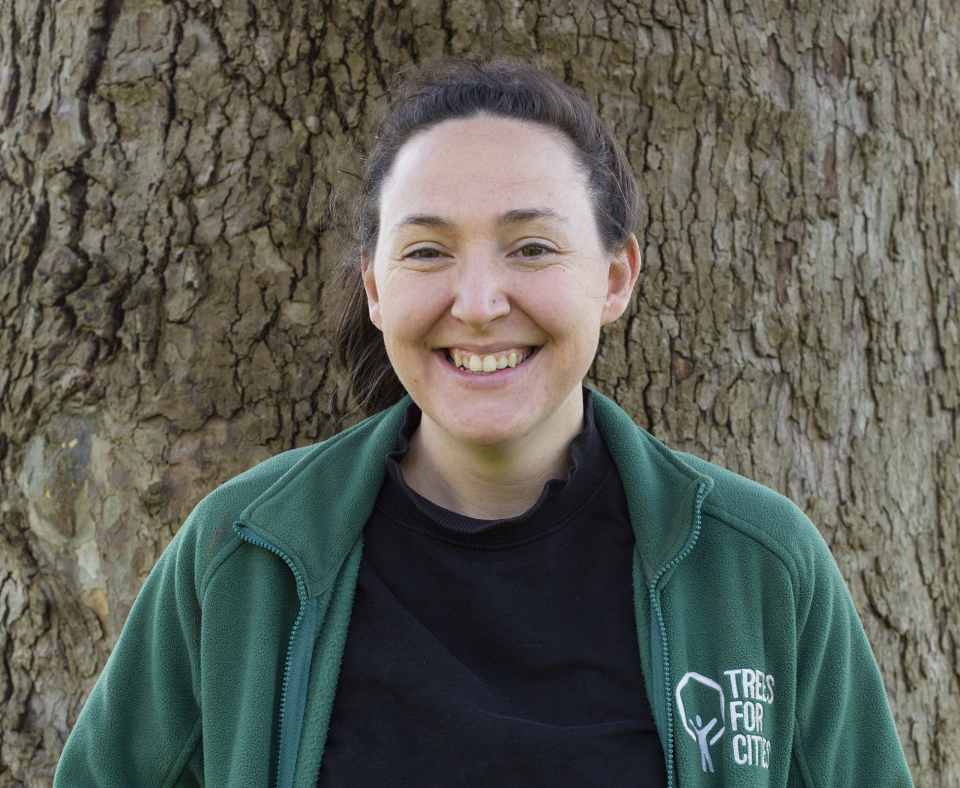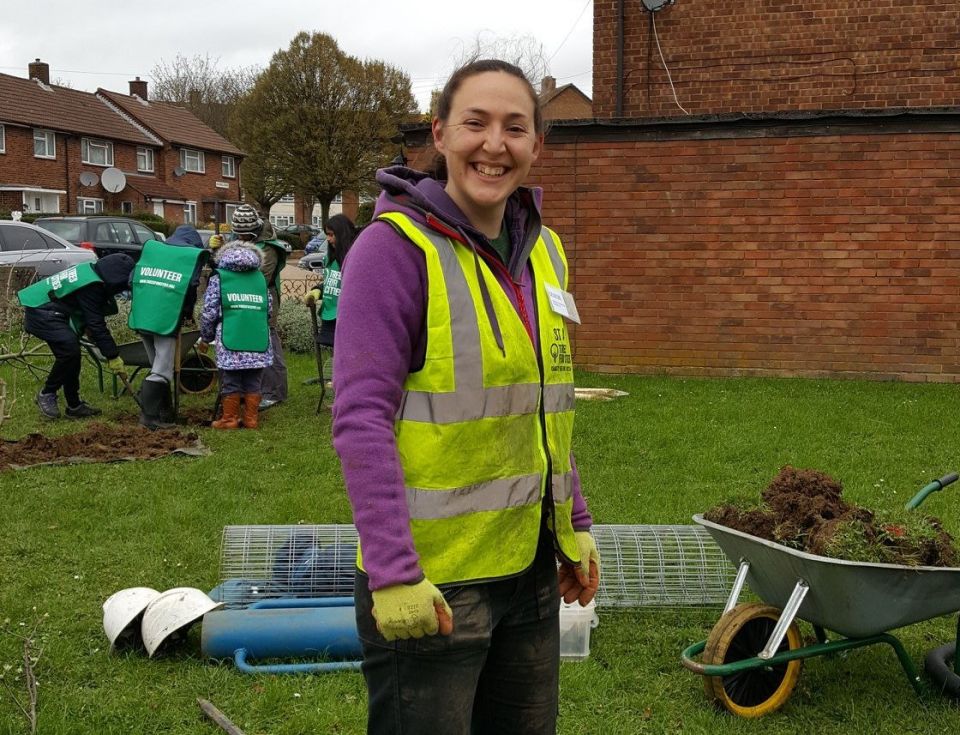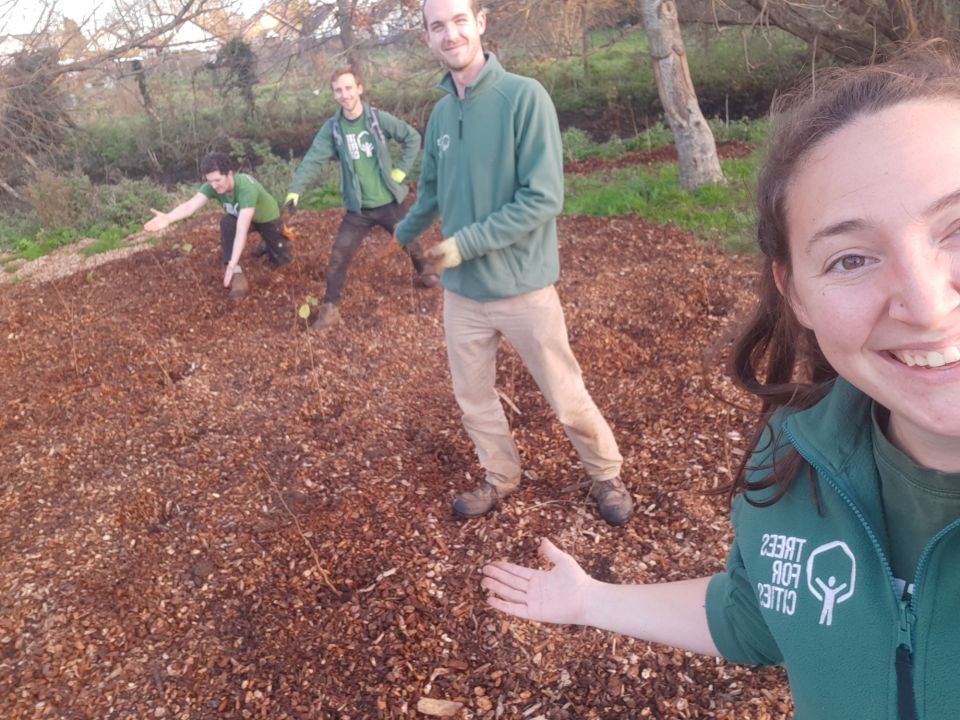5 questions with our senior urban forest manager

In honour of International Women’s Day on 8th March, HortWeek has spoken to some outstanding women in the industry to find out about their role, their experience of being a woman in their sector, and what more we can be doing to create equality. Keep on reading for 5 questions with our very own Georgie Logan.
Georgie Logan has been at Trees for Cities since 2018 and has often found herself working in places where she as a woman was the minority. Luckily she has always felt respected in these environments, and she is seeing more women joining the industry in practical, hands-on roles.
How did you get into the industry?
I’ve always had an interest in the natural world, and started volunteering for a local conservation group when I was young to help with my mental health. It was a great experience, and I went on to study wildlife conservation at university. After I graduated, I started to gain some varied experience that included leading volunteer groups in habitat management activities, working in hospitality and working in the recycling industry. I’ve always enjoyed practical, hands-on jobs and I was so excited to join Trees for Cities as a coordinator in 2018, leading volunteer’s and planting trees on our urban forest projects.
What has your experience of being a woman in the industry been?
I have often worked in places where as a woman I’ve been in the minority. When I worked in recycling I was the only woman in a team of 30. Despite often being in male-dominated environment, I’ve always been very fortunate to feel respected and included in the work environments I’ve been in. Although I’ve had my fair share of enquiring looks from members of the public, as I think the perception is still that a lot of these roles are more suited to men.

Do you think we've come a long way when it comes to equality/equity for women or do we still have work to do?
Yes, we have definitely come a long way, but there is certainly still plenty of work to do. I’ve seen a big shift over the last few years with more women joining the industry in practical hands-on roles, which is really exciting. Our urban forest team at Trees for Cities is now mostly women, as is our senior leadership team, and it’s great for young girls at our volunteering events to be able to see women in these positions. I’m aware this isn’t reflective of the rest of the industry, it would be great to see more equity across the industry of women in all roles at all different levels of organisations.

What does your day to day job look like, and what's your favourite part of your role?
The main aspects of my day to day job now include project management and strategic planning of our urban forest planting projects and managing our urban forest team and our schools build team operations. But every day is different, which I love.
Some days I will be out on site supervising planting activities, some days I will be leading training for our newer staff, and some days I will be managing project delivery which includes feeding into planting designs, creating species lists, logistical planning, working with suppliers and managing budgets etc. My favourite part of the role is getting to see the completed planting projects and how they can transform urban spaces, and bring communities together.
What ambitions do you have for the future?
Honestly I’m not sure at this point. I know I’d like to study more and deepen my knowledge and understanding of urban trees and our environment. And I’d like to continue working on projects that are based around communities and improving London’s green spaces!
Georgie & her team in action
In line with this year’s International Women’s Day theme of #InspireInclusion, Trees for Cities want to share their story with as many people as possible to help ignite further change. Follow them on social media @treesforcities and find out more about Trees for Cities’ women behind the trees.
Head over to Hort Week for more inspiring interviews with women in horticulture.
Donate to Trees for Cities and together we can help cities grow into greener, cleaner and healthier places for people to live and work worldwide.
Donate